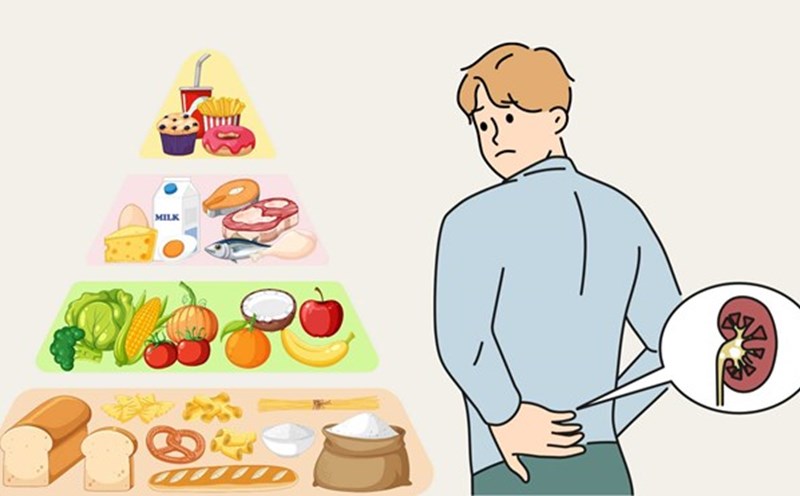The kidneys play an important role in filtering waste and regulating electrolytes in the body, including potassium - an essential mineral that helps maintain muscle and cardiovascular function. Bananas and coconuts are both potassium-rich foods, but for patients with kidney disease, consuming both foods at the same time can be seriously harmful, according to Only my health.
Bananas and coconut - a rich source of potassium
Dr. Soubeer Ghosh - a kidney specialist at PSRI Hospital (New Delhi, India) - said that an average banana contains about 400 - 450 mg of potassium, while coconut water and coconut worm also provide a significant amount of potassium. For healthy people or patients in the early stages of chronic kidney disease, this potassium intake is often not a problem. However, as kidney disease progresses, the kidneys' ability to filter and excrete potassium decreases, leading to potassium accumulation in the blood.
Risk of hyperkalemia in patients with kidney disease
High blood potassium is a condition in which the potassium concentration in the blood exceeds the safe level, which can cause serious complications such as arrhythmia, muscle weakness, fatigue, and even sudden cardiac arrest. Research in 2022 in the International Journal of kidney and vascular Diseases shows that this is an increasingly serious problem in people with chronic kidney disease.
When kidney patients eat coconut and banana at the same time, the amount of potassium intake in the body increases dramatically while the kidneys cannot eliminate it effectively, leading to a serious risk of potassium overload. This is especially dangerous when coconut water, which is often consumed in large quantities during the hot season, contributes to increased potassium intake.
Warning signs of increased blood potassium
Patients need to pay attention to warning symptoms of potassium overload such as:
Fatigue, muscle weakness
Numbness or tingling in the limbs
Nausea
Slow or irregular heartbeat
Feeling uncomfortable or smashing your chest
If not treated promptly, this condition can lead to paralysis or sudden cardiac arrest.
Advice for kidney patients
Dr. Ghosh recommends that patients with end-stage kidney disease should limit their consumption of potassium-rich foods such as bananas and coconut, especially not eat them at the same time to avoid the risk of hyperkalemia. Instead, patients can choose less potassium fruits such as apples, pears, grapes, berries, watermelon in moderation.
For drinks, juices such as lemon juice, apple juice or unsweetened cranberry juice are safer options for patients.











